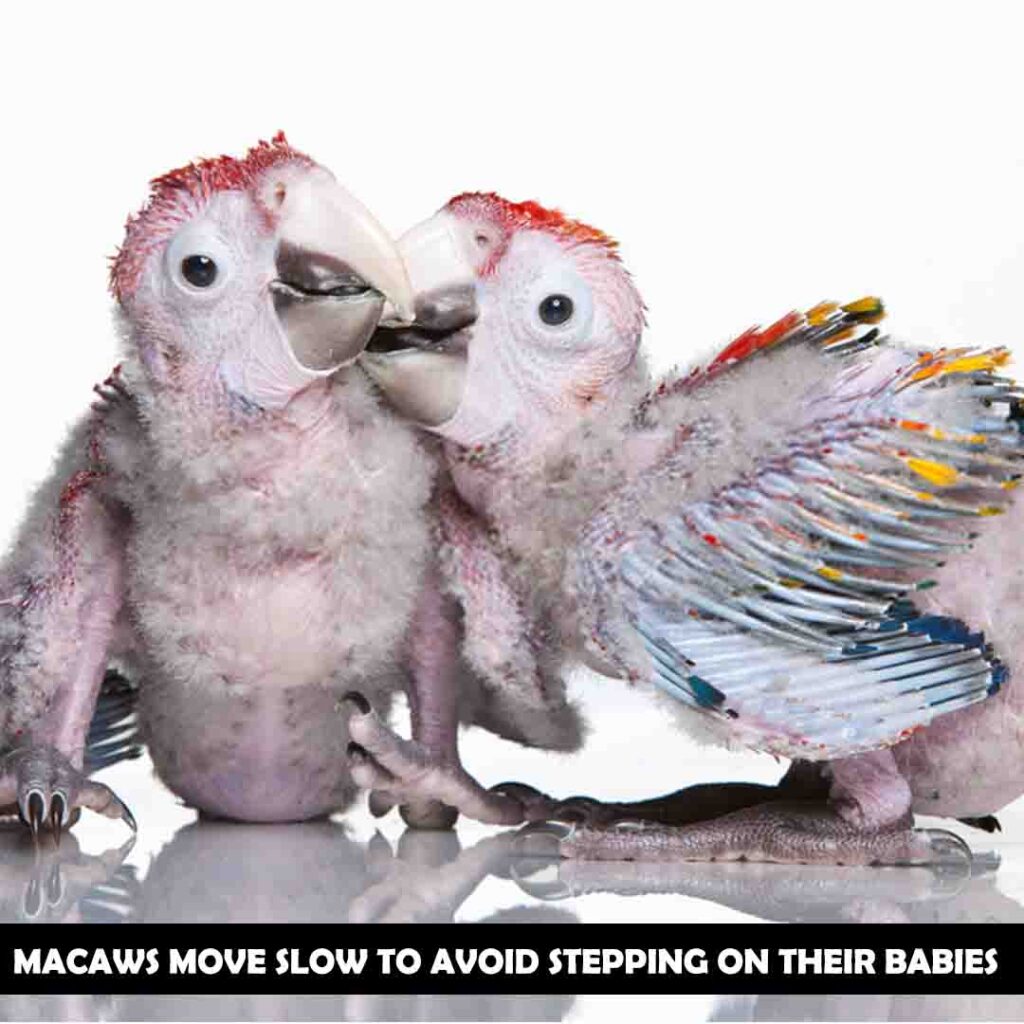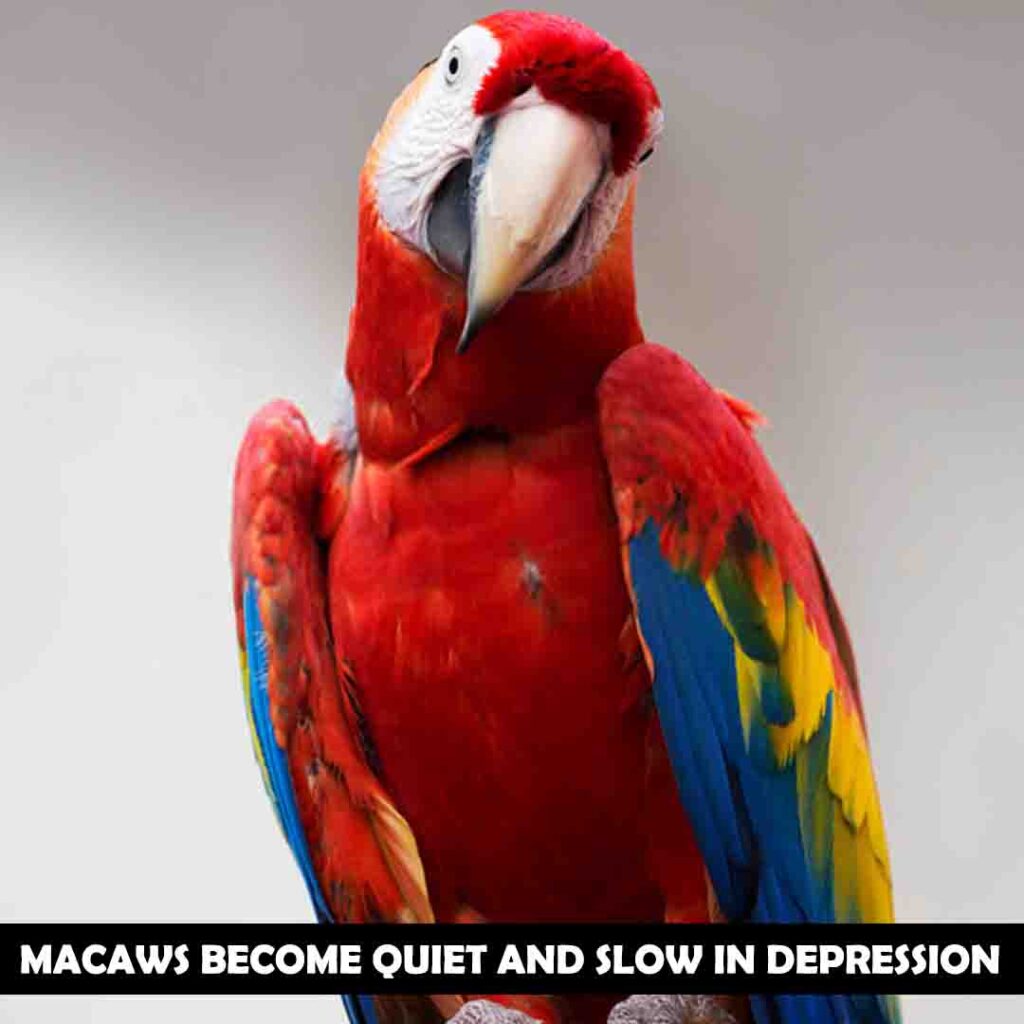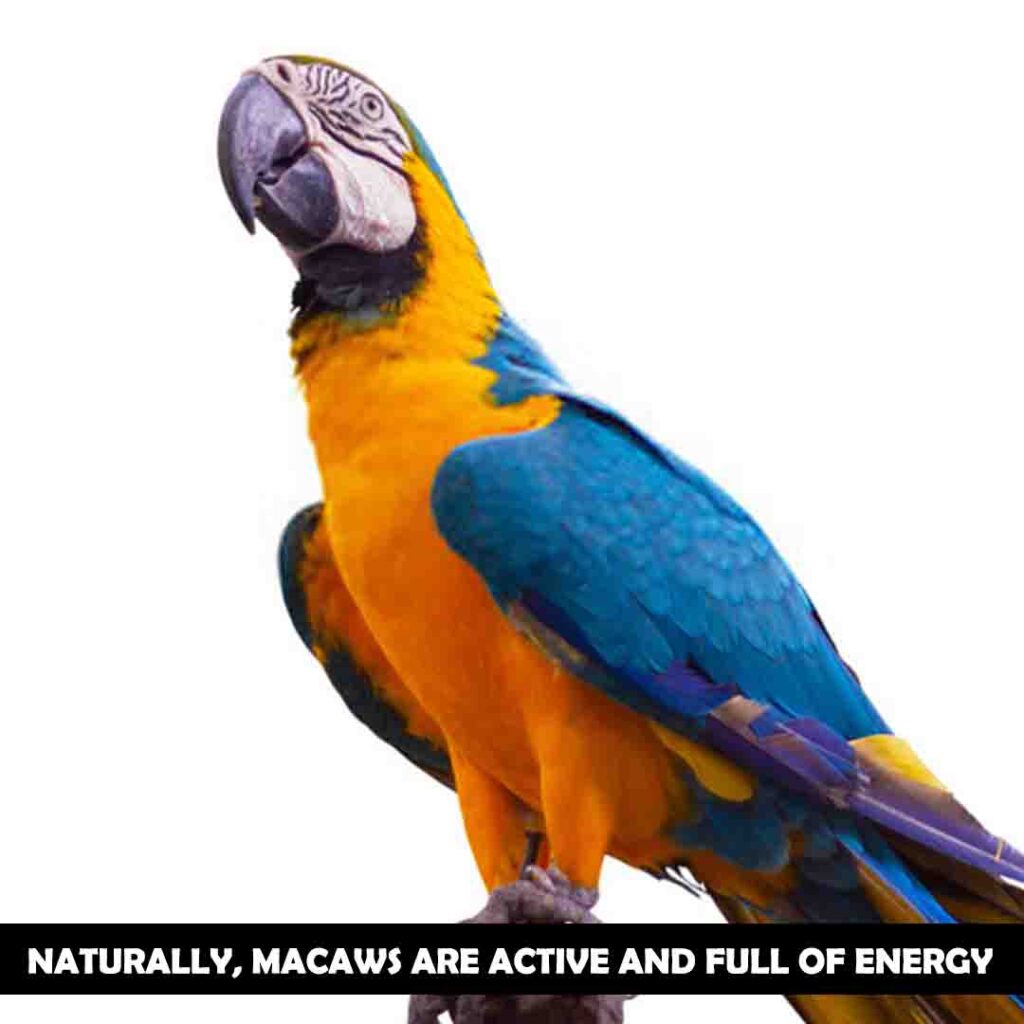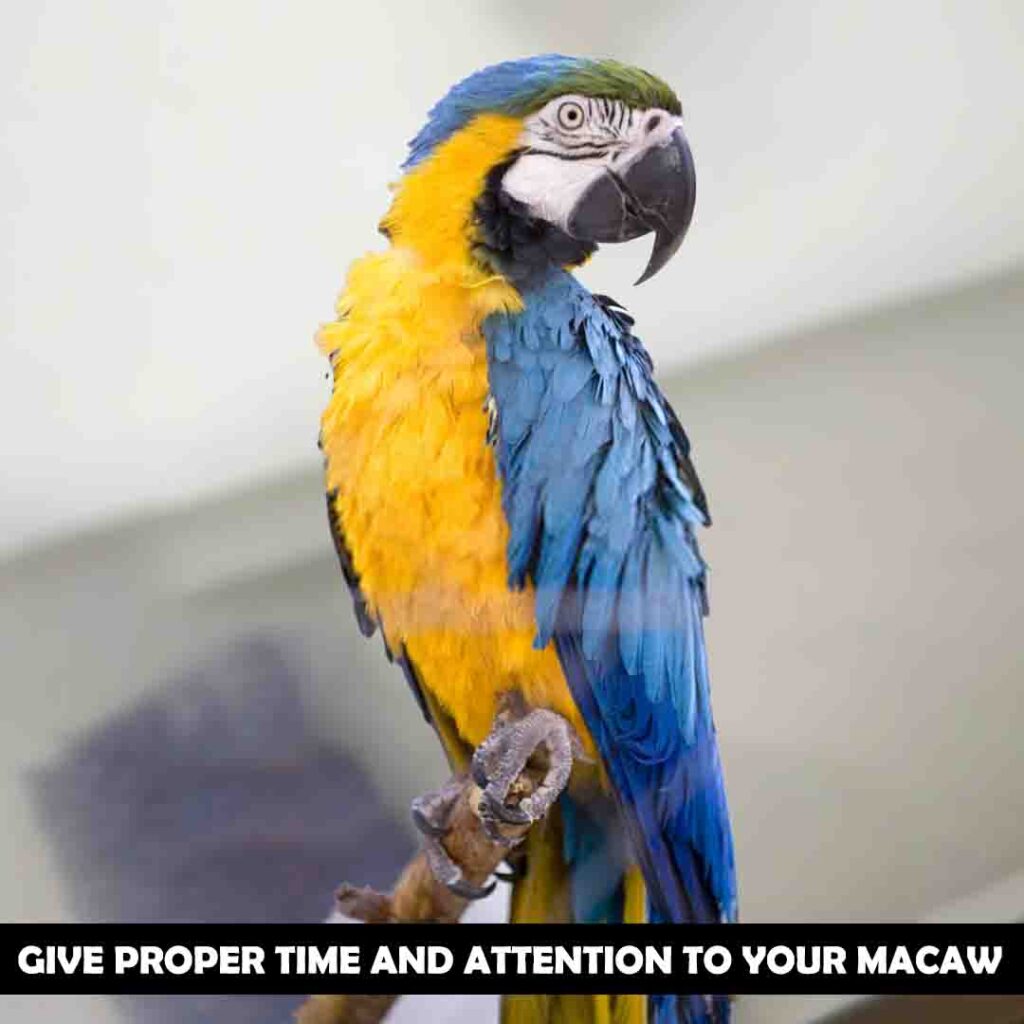Last Updated on February 17, 2022
Macaws are intelligent, social, active, and interactive birds. They remain busy feeding, foraging, and flying for most of the day. Let’s see, are they slow-moving? In what situations are they not active?
Macaws are not typically slow-moving. They can be slow-moving when sick, depressed, lethargic, deformed, abnormal, clipped wings, and molting. Generally, macaws are very active and playful. They need a lot of attention and various toys to make them mentally and physically strong.
In this article, I will talk about the natural behavior of macaws and the situations when they are not active. You can learn the ways to keep your macaws happy and content. Let’s start.
Slow-Moving Macaws
Naturally, the macaws are not slow. They can reach a speed of 56 Km/hour while flying. They are social and interactive birds unless they are healthy. Their lousy health or other environmental issues can make them sick, bored, or depressed.
They lost interest in their daily feeding and reproductivity. Less feeding and lack of exercise can affect the immune system significantly, making it weak and lethargic. Macaws feel difficulty in flying and moving for other social needs.
A slow-moving macaw looks like a sick bird, but it is unnecessary. A sick macaw remains slow until it is treated and receives good care. But a healthy macaw can be quiet when just born or when it gets depressed or near to death.
Why Are Macaws Slow-Moving?
A macaw can be slow due to environmental, physiological, and psychological reasons. Several conditions are discussed below when a macaw is slow-moving.
Chicks
After hatching, the chicks are tiny and blind. They are dependent on their parents or caretakers for feeding. If parents are not experienced or absent, then hand feeding is done by the caretaker.

Parents bring food and feed them one by one. They turn over the sides of their chicks and keep them safe from predators or falling from the nest. Chicks are slow-moving as they are blind and with no wings.
Until weaning, parents help them groom, and after weaning, the macaws can fly and forage on their own. But baby macaws are slower than young macaws.
Sick
A macaw can be sick due to several reasons. They are very susceptible to different bacterial, fungal, and viral infections. When a macaw is suffering, whatever the disease, it loses its energy, sleeps too long, moves very slowly or less feeding, less water intake makes it lazy and lethargic.
You need to observe the macaws daily being an owner. If you feel something different in their movement, get them to the vet and treat them accordingly.
Depressed
Macaws are very active and energetic parrots. They get bored quickly with the same feed, toys, or unexpected situation or place. It depends on the species and the personality of the macaws, As all macaws are not of the same temperament.
Some can easily accept the new situation, but some are stubborn and do not like the change. If you introduce a macaw to your pet family, it gets depressed very soon. It slows down and loses interest in flying and interacting with new pets.

If the situation is prolonged and you do not give it proper care and attention. It can affect productivity, health, and activeness.
Abnormal or deformed macaw
Any abnormality in macaws makes them depressed and slow-moving. Sometimes macaws lose their wings or toes in accidents. They can not move fast although they are healthy and take their owners’ attention.
Clipped wings
To make them socialized and well adapted to the new situation, many owners clip the wings of macaws. They can not fly too high, and their speed slows down compared to other winged macaws.
A clipped macaw tends to remain slow, as it knows he cannot fly too high. The situation makes it depressed because it cannot perform its natural behavior.
Molted macaws
A molted macaw looks slow-moving. Molting is the shedding of feathers naturally. During this process, damaged or new shiny leaves replace older feathers. It is necessary to give a fresh outlook or take healthy and smooth flights.
During molting, the macaws get tired and are very sleepy. Although this process is not painful, it causes stress in macaws.
The Natural Behavior Of Macaws
Naturally, macaws are very active, full of energy, lively, playful, and very busy. They can spend 6-8 hours flying in flocks of 20-25 macaws at the speed of 35mph.
They spend most of the day hours outside the nest where they fly, feed, rest, forage, interact with other flock members, and breed for their survival. They are very loud and interact with other flock members with different sounds.

They find mates for life. They are very loyal and affectionate to their mates and seem very friendly with other flock-mates. During breeding, both partners are responsible. The female incubates the eggs, and males arrange the feed. After hatching, both parents take care of their chicks.
Care Of Captive Macaws To Keep Them Active
In captivity, macaws cannot fly long distances and cannot do the same as they are used to in their natural habitat. That is why some macaws get depressed in a new situation and show different abnormal behaviors like aggression, feather plucking, biting, stress, anger, and fear.
All the above behaviors lead to tiredness that makes them sick and slow. You can make them active and healthy by taking great care of your macaws. Some of the tips are listed below, which can help you protect your macaw from being slow.

- Provide appropriate cage size because they need plenty of space to fly.
- Spend 4-5 hours of the day with the macaw as they need attention. Otherwise, they get depressed.
- Give them proper feed.
- Keep the cage and surrounding area clean.
- Provide colorful toys for good exercise.
- Manage the aggressive macaw with training.
- Give them some out-of-the-cage time.
- Allow the others in the home to interact with the macaws to avoid over-bonding.
- Observe the macaws daily and if you feel someone is sick. Treat them immediately.
Conclusion
Finally, you can say that macaws are slow-moving only when they are sick, depressed, tired, frightened, molted, deformed, and when they are newly born. Sickness can affect the immunity and energy level, so they lack interest in their routine tasks like feeding, foraging, and breeding. A slow-moving macaw is more sleepy and lethargic. Generally, they are active and playful. They can enjoy life with full zeal and zest if adequately cared for by the owners. So, if you are interested in macaws, you must take care of them with a lot of attention.
Also Read About: Are Male Macaws Bigger Than Females?
Bilal is an aviculturist who loves to write in free time. His personal experience with bird care and breeding enables him to share valuable tips. So far, he has contributed more than 100 blogs to this site.
His goal is to promote bird-keeping and save endangered species.
